Thanks to Baggage Carousel 4 for humoring me on this fun thread. It was really fun to think about over this cold snap; something to occupy my mind while we get through the 4-day weekend (i.e.: no school for 4 days!) I’ll happily comply with requests from others to continue it… it’s a bit too tempting to pass up, I admit. Her questions, my answers (my favorite pseudo-question is the “ps” at the end):
uff. okay, let’s see. five questions, tailored for you. and with dissertation pressure!
1. you and i have both spent a lot of time in school, some of it even on similar subject matter. one of my biggest hangups has always been writing in textbooks – i just can’t do it. on the upside, you get more money from the bookstore when you sell them back. what’s your academic hangup? and what benefits (minor or major) does it have?
A tough one. I am similarly very specific about my note-taking: in-text/articles always, underlined, starred, or bracketed with pencil (preferred), pen, or highlighter of the warm yellow variety (NEVER any other color). Notes are written in the margins and arrows, blocks, and lines are used. The text itself is NEVER highlighted. In fact, when I look for used books, if the used book is highlighted on the text, I will contemplate buying new – it’s too distracting. An upshot is that I know my system and it works for me. Drawbacks? I can’t read without a pencil or pen in hand. I’m not sure if this is a hangup or evidence of anal-retentiveness.
I do have significant psychological blocks towards upper-level coursework organization and teaching style. I strongly prefer well-moderated, thoughtful discourse on intelligent, relevant literature. Using class to review readings, play “teaching†games, or “study†for an exam is like nails on a chalkboard to me, and if in an off mood, the responsive moaning from the depths of my tortured soul may actually be audible.
2. the answer is “cherry pie, stuffed dinosaurs, and a nickel.” what’s the question?
The question: What are three things you’d take to entertain the kids during a boring trip the doctor’s office? The cherry pie is from Hubig’s, a local pie shop that sells fresh pocket pies (nothing like the hostess stuff). The pie is their “treat†for being good at the appointment, although it is likely that when they get an opportunity to eat it, they will use it for finger paint more than food. The purpose of the stuffed dinosaurs is self-explanatory. They will use them to torture each other, which keeps them out of my hair. William will make his dinosaur ROAR in Kate’s face, Kate will laugh and use hers to beat him on the head. The nickel is in Will’s pocket. It’s his pirate money.
3. write a the most positive review possible of the worst hotel you’ve ever stayed in. be factually accurate.
The Stanley Hotel (Estes Park, CO) may have provided the inspiration for the novel “The Shining†and the Timberline Lodge on Mt. Hood (OR) may have provided the exterior shots for Kubrick’s 1980 film, but the Mammoth Hot Springs Lodge in Yellowstone National Park is the real deal. Every detail –- the dusty collections of photos showcasing the hotel’s past splendor and drama, the guest rooms which mysteriously heat up like large ovens, the eerie hall bathrooms which are oddly empty, even when you distinctly hear showering and laughter from within, to the macabre stains lining your ages old in-room skin — harkens back to a time when you believed there were monsters under your bed, waiting to grab your exposed ankle in the night. Its forest setting in the beautiful mix of explosive geysers and quiet wilderness within the National Park heighten the feeling of isolation as you prepare for sleep.
If you are ready for a thrilling night — hoping to open your eyes and see rats when you hear those footsteps race across your room — then this is the place for you. A personal suggestion: even if gets unbearably hot, don’t stick your ankle out from under the covers.
4. what is absolutely, positively, non-negotiable in your life? why?
The “Alice in Wonderland” coffee mug is mine alone. (Okay, that is sometimes negotiable.)
Seriously, though, I am torn with this answer because I fear sounding cliché. But truly: my family. I grew up in a military household, my father gone for months at a time. I’m told that I understood “Da-Da†to be a tape recorder, from all the time my Mother spent pointing at it saying “Da-Da†when we would listen to the voice recordings my Dad sent from sea. I have little to no memories of my Father being a part of my daily life as a child – only homecomings and goodbyes. So, as an adult, I’ve made it a point to not separate my own family. I did not marry or have children to be separated from them, I made a family because I wanted to share my lives with them. Paul and I constantly work within compromise to determine how to progress both of our interests and careers without having to deal with separation. Since my academic and personal pursuits are strongly tied to vulnerable areas of the world -– and he is a high-level software engineer/architect –- these needs are often at odds. Because the last 4 years of my life have included being pregnant or nursing (or both) I’ve had to make even more compromises (i.e.: pulling myself from the pool of applicants for short-term jobs). Now that I am nearing the end of those physical complications, I am testing putting myself back into those opportunities. While I love the challenges of New Orleans and am fascinated, engaged, and absorbed in the study of this changing place and the enormous potentials here… I worry that my lack of multi-lateral consultancies and related experience is ultimately hurting my career. It remains to be seen how I will handle this in the coming years. I am eager for a short-term assignment abroad –- not necessarily for a dissertation, but for a JOB — so eager that Paul has actually received go-ahead to again telecommute from another time-zone if the right opportunity should arise. (Anyone working in IH know of anything??)
5. the requisite inanimate object question: you are a textbook. describe yourself, your subject, where you hang out, etc. (hey, full circle to question #1, sort of!)
I’m an ethnography, or monograph, depending on how you think of them. Usually I’m read in anthropology courses, but I occasionally pop up in theoretical, multicultural, or intersectional studies (feminist theory, Latin American studies, etc.) I hang out in local coffee houses (I may show up in a chain place, but usually only within the bag of someone more likely to show off my cover than to actually read me). I’m most likely read by chapter, copied by a professor and put in a coursepack. My content includes direct, real-life experiences of individuals and theoretical context that many within applied fields look at (to their professional loss) as irrelevant. For others, I am the book that gave them the “aha!†moment of clarity that opened up new doors for looking on the world.
and the bonus question that i didn’t make up: how much wood would a woodchuck chuck, if a woodchuck could chuck wood? and what does it mean to chuck wood, exactly?
How much? I’ve heard that he would chuck as much as he could. Wasn’t there a study about this awhile back? What does it mean? I’ll approaching it from an existentialist perspective: chucking wood means something different to each woodchuck, for whom ‘chucking wood’ symbolizes something that they want or need from an indifferent world. It could be displacing as much dirt as possible to borrow deep into the ground in escape of winter cold. It could be endlessly searching for food and eating as much as is available. Or, maybe ‘chucking wood’ is just those woodchucks gettin’ some.
p.s. between you and me, i really really tried to figure out how to work the broad street pump and living in louisiana into a question. couldn’t seem to do it. if the spirit moves you, describe what you think the two might have in common.
An excellent, inspired idea! It works on many levels.
Before the Broad Street Pump was identified as a source of cholera, London’s topography was a key suspect. Lower lying land collected more mist and fog, which were heavily suspect as sources of disease. These maps, initially for topography, lead to the identification of pumps as key factors in collections of disease (as I understand the story to play out). Topography is an obvious issue within New Orleans, where mere inches can make a huge difference in risk (perceived and realized). After Katrina, topography is a major factor in media reports and city planning – coming up for discussion when politically advantageous. However, pointing to topography as a sole source of risk among any city’s population would be missing a huge piece of the puzzle (as seen by the example of the Broad Street Pump). Assessing London via topography may tell a story, just as it tells a story in Louisiana – but in Louisiana (as in London) it will not necessarily be the source of a solution. The Broad Street Pump may be a lesson to Southeast Louisiana: the risk of disease within a population may best be measured through the services it uses to survive. Perhaps the very life-lines of a population could be what cripple it.
I’m not suggesting that the vulnerable in SE Louisiana be cut off from services, ala “breaking the handle of the pump,†but I am suggesting that the ‘well’ may in fact be a factor in how poverty and risk play out in this environment. Ending the epidemics in this city may take the kind of bold and brash move John Snow did as he broke the handle off the pump supplying the city with tainted water — we may need someone to end the forces that supply the city with an anemic social service sector, a failing, for-profit health system, and an unequal distribution of aid, rebuilding, and homemaking… for starters.
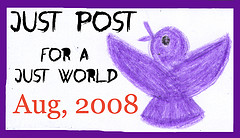
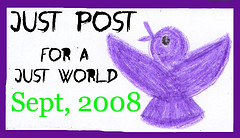
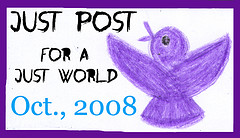


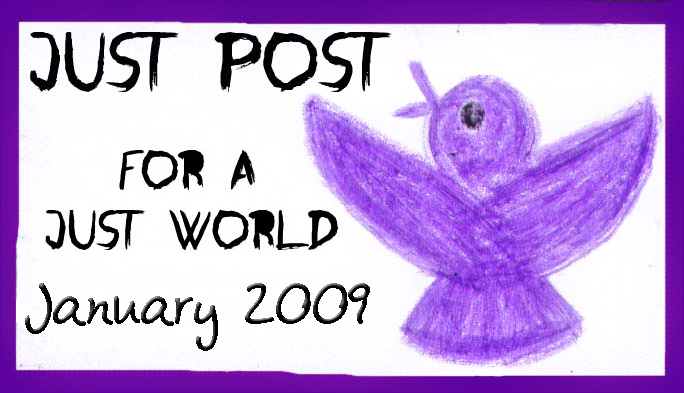
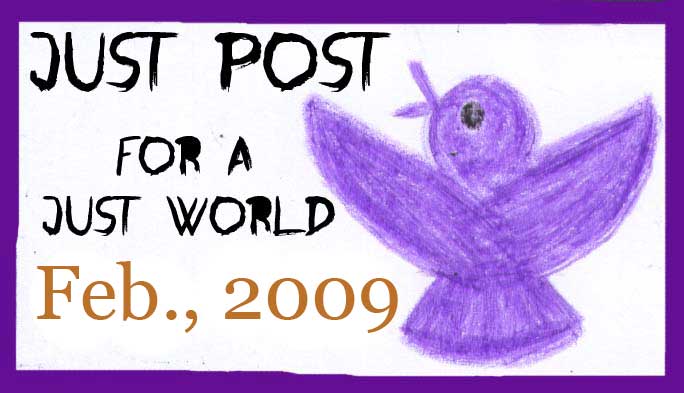
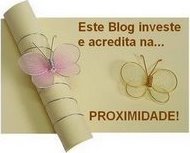
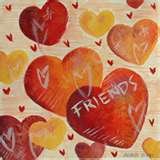
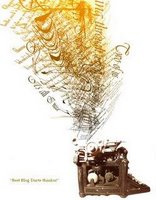





Post a Comment